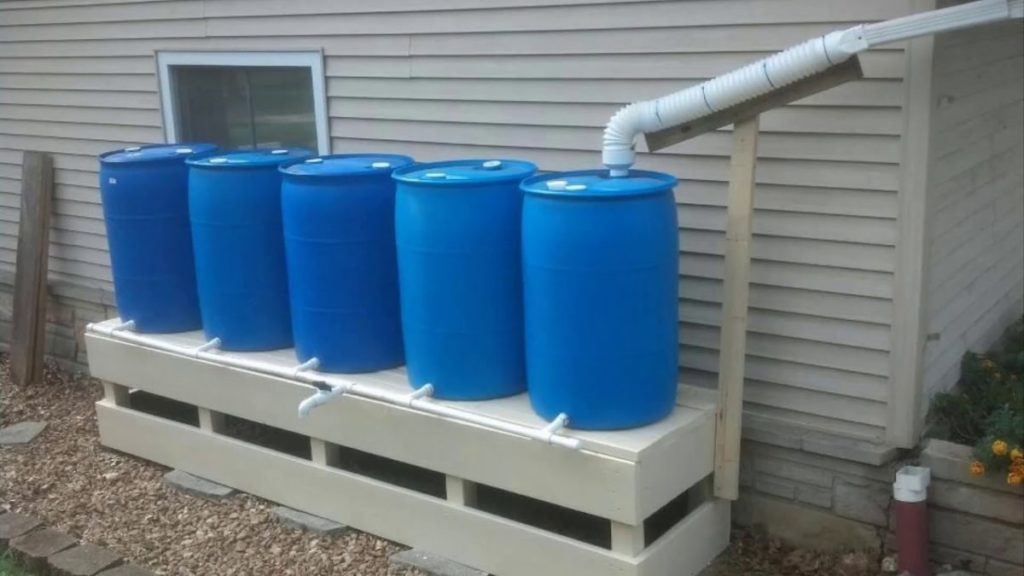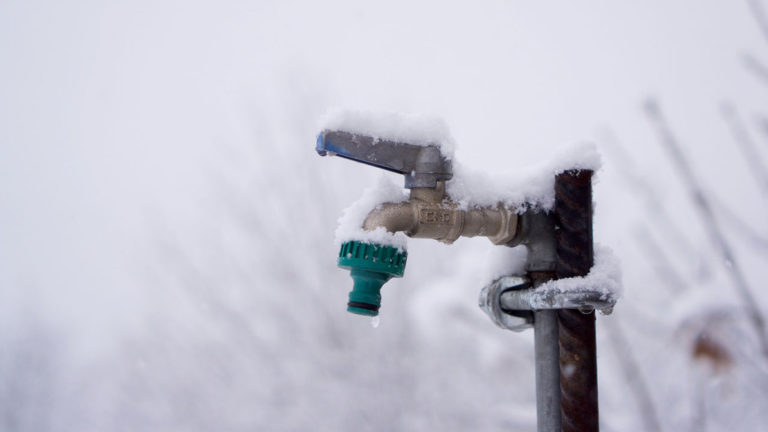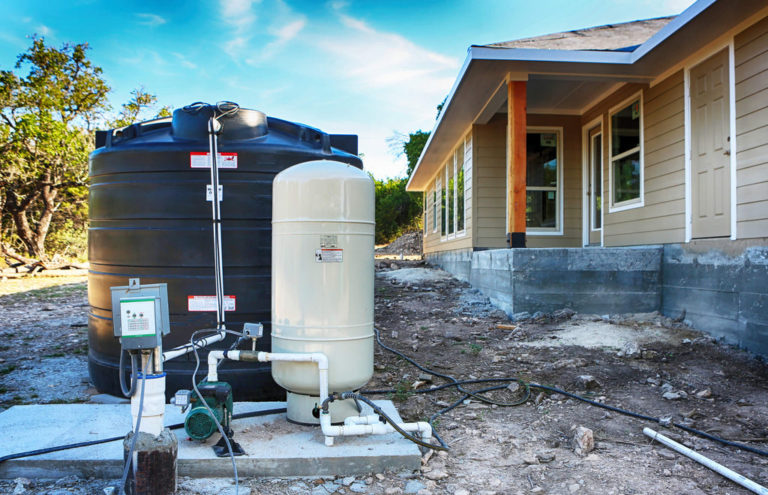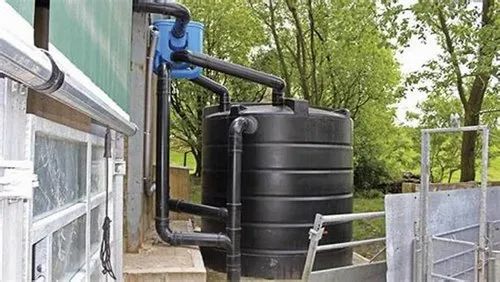Rainwater harvesting is a important aspect of sustainable and self-sufficient living, particularly for those who live off the grid.
By collecting and storing rainwater, you can provide a reliable source of clean water for your household needs, reduce your reliance on public utilities, and lower your carbon footprint.
We’ll explore the benefits of rainwater harvesting for off-grid living and offer practical tips on how to implement this eco-friendly solution in your own home or property.
Reduces dependence on municipal water supplies
By harvesting rainwater, you can reduce your reliance on municipal water supplies, which can be expensive and unreliable, especially in rural areas.
By collecting and storing rainwater, you can provide a reliable source of water for your home and garden, without the need for expensive and unreliable municipal supplies.
This is especially beneficial during times of drought or water shortages, when municipal supplies may be restricted or rationed.
With a rainwater harvesting system, you can collect and store rainwater from your roof and gutters, and use it for a variety of purposes, such as irrigating your garden, flushing toilets, and washing clothes.
By reducing your reliance on municipal water supplies, you can also lower your water bills and help to conserve this precious resource.
Lowers water bills
With rainwater harvesting, you can use free rainwater for your non-potable needs such as flushing toilets and washing clothes, which can lower your water bills.
Rainwater harvesting is an innovative solution for households and businesses looking to reduce their water bills and rely less on municipal water supplies.
By collecting and storing rainwater, you can use this free resource for your non-potable needs such as flushing toilets, washing clothes, and cleaning surfaces.
This can significantly lower your water bills, as potable water is often the biggest contributor to household expenses.
Plus, using rainwater for these purposes is not only cost-effective, but it also helps to conserve potable water for drinking and cooking.
Rainwater harvesting systems can be installed in a variety of ways, from simple rain barrels to more complex underground cisterns.
Depending on your specific needs and property constraints, you can choose the best system for your home or business.
With a properly maintained rainwater harvesting system, you can collect and store thousands of gallons of rainwater each year, providing enough water for all of your non-potable needs.
Plus, many rainwater harvesting systems come equipped with features such as automatic shut-off valves and flow regulators, ensuring that your system runs efficiently and effectively.
By investing in a rainwater harvesting system, you can not only reduce your water bills but also contribute to a more sustainable future.
By using rainwater for your non-potable needs, you can help to conserve potable water and reduce the strain on municipal water supplies.
This is especially important in areas experiencing water shortages or droughts, as rainwater harvesting can help to supplement the local water supply and provide a reliable source of water for households and businesses.
Rainwater harvesting systems can help to reduce stormwater runoff, which can cause erosion and pollution in local waterways.
Overall, investing in a rainwater harvesting system is a smart decision for homeowners and businesses looking to save money, conserve water, and contribute to a more sustainable future.]]
Rainwater harvesting is an effective way to reduce your water bills and contribute to a more sustainable future.
By collecting and storing rainwater for non-potable needs such as flushing toilets and washing clothes, you can significantly lower your water usage.
In fact, with a properly maintained rainwater harvesting system, you can collect and store thousands of gallons of rainwater each year, providing enough water for all of your non-potable needs.
Many rainwater harvesting systems come equipped with features such as automatic shut-off valves and flow regulators, ensuring that your system runs efficiently and effectively.
Not only can rainwater harvesting save you money on your water bills, but it can also help protect local waterways from erosion and pollution caused by excessive water runoff.
By collecting and storing rainwater, you can reduce the amount of water that runs off into local waterways, preventing erosion and pollution.
This is especially important in areas with high levels of urbanization and impermeable surfaces, where water runoff can be particularly problematic.
Investing in a rainwater harvesting system is a smart decision for homeowners and businesses looking to save money, conserve water, and contribute to a more sustainable future.
Not only do these systems provide financial benefits, but they also have numerous environmental benefits, making them a worthwhile investment for anyone looking to reduce their water usage and make a positive impact on their local community.
Provides a reliable source of water
Rainwater harvesting can provide a reliable source of water even during times of drought or other weather-related events that may affect municipal water supplies.
Rainwater harvesting offers a reliable source of water even during times of drought or other weather-related events that may affect municipal water supplies.
By collecting and storing rainwater, households and businesses can maintain a steady supply of water for non-potable uses such as flushing toilets, washing clothes, and watering plants.
This is especially important during times of drought or other weather-related events that may disrupt municipal water supplies, as rainwater harvesting systems can continue to provide a reliable source of water.
By collecting and using rainwater, individuals can reduce their reliance on municipal water supplies, which can help to conserve water and reduce the strain on water treatment plants during times of high demand.
Overall, rainwater harvesting can provide a reliable source of water even during times of drought or other weather-related events that may affect municipal water supplies, making it a valuable tool for water conservation and sustainability.
Helps conserve water
By using rainwater for non-potable purposes, you can conserve potable water for drinking, cooking, and hygiene.
By using rainwater for non-potable purposes, such as flushing toilets and washing clothes, you can conserve potable water for drinking, cooking, and hygiene.
This is particularly important in areas where water scarcity is a concern.
Rainwater harvesting systems can be installed in both residential and commercial buildings, and can collect and store rainwater for later use.
This not only reduces the demand on potable water supplies, but it can also help to reduce the amount of wastewater that needs to be treated and disposed of.
Using rainwater for non-potable purposes can help to reduce the risk of waterborne diseases, as the water is less likely to be contaminated with harmful bacteria and viruses.
By taking advantage of rainwater for non-potable uses, you can help to ensure a more sustainable and efficient use of water resources.
Can be used for irrigation
Rainwater can be used for irrigation, providing a free and sustainable source of water for your garden or farm.
Rainwater is an abundant and freely available resource that can be harnessed for irrigation, providing a sustainable and cost-effective alternative to traditional water sources.
By collecting and storing rainwater, you can supply your garden or farm with a consistent and reliable source of water, without relying on municipal or well water.
This not only saves you money on your water bill, but it also helps to conserve this precious resource and reduce your environmental footprint.
Moreover, using rainwater for irrigation is an eco-friendly practice that promotes sustainable agriculture and helps to protect the planet’s finite water resources.
By utilizing rainwater collection systems, you can irrigate your crops and plants with a natural and chemical-free source of water, which can improve soil health and fertility, and enhance the overall health and productivity of your garden or farm.
With the right rainwater collection and storage systems in place, you can reap the benefits of this sustainable and environmentally conscious practice, while also contributing to a more eco-friendly and sustainable future.
Increases water security
By harvesting and storing rainwater, you can increase your water security and reduce your vulnerability to water shortages or restrictions.
Harvesting and storing rainwater is an effective method to increase your water security and reduce your vulnerability to water shortages or restrictions.
By collecting and storing rainwater, you can provide a reliable source of water for non-potable uses such as irrigation, toilet flushing, and washing.
This can help reduce your reliance on municipal water supplies, which may be subject to restrictions or shortages due to factors such as drought, aging infrastructure, or population growth.
Moreover, harvesting rainwater can also provide a cost-effective alternative to purchasing potable water for these non-potable uses.
By investing in a rainwater harvesting system, you can save money on your water bill while also supporting a more sustainable and resilient water supply.
By reducing your reliance on municipal water supplies, you can also help to alleviate pressure on these systems, which can help to prevent infrastructure failures and ensure a more consistent water supply.
Overall, harvesting and storing rainwater is a simple yet effective way to increase your water security and resilience, making it an ideal solution for communities facing water scarcity or uncertainty.
Reduces stormwater runoff
By capturing rainwater and using it for various purposes, you can reduce the amount of stormwater runoff that enters local waterways, helping to mitigate flooding and erosion.
By capturing and using rainwater, you can significantly reduce the amount of stormwater runoff that enters local waterways.
This is especially important during heavy rainfall events, when stormwater runoff can cause flooding and erosion.
By collecting and storing rainwater in barrels or cisterns, you can harness this resource for various purposes, such as watering plants, flushing toilets, and washing clothes.
This not only helps to mitigate the risk of flooding and erosion, but it also reduces the demand on municipal water supplies, which can help to conserve this valuable resource.
By using rainwater, you can reduce the amount of pollutants that enter local waterways, as storm water runoff often carries pollutants such as oil, grease, and sediment into waterways.
Overall, capturing and using rainwater is a simple yet effective way to protect our local waterways, reduce our reliance on municipal water supplies, and conserve this valuable resource for future generations.
Can be used for emergency purposes
In the event of a natural disaster or other emergency, having a reliable source of rainwater can be a lifesaver, providing water for drinking, cooking, and hygiene.
In the event of a natural disaster or other emergency, having a reliable source of rainwater can be a lifesaver, providing water for drinking, cooking, and hygiene.
Rainwater collection systems, such as rain barrels or cisterns, can be installed at home to capture and store rainwater for use during emergency situations.
These systems are designed to collect and filter rainwater, ensuring that it is safe for consumption.
By implementing a rainwater collection system, households can become less reliant on public water supplies, which may be disrupted during emergencies, and have a consistent source of clean water for their essential needs.
Rainwater collection systems can help reduce the amount of stormwater runoff, which can alleviate pressure on urban drainage systems and reduce the risk of flooding.
Investing in a rainwater collection system can provide peace of mind and a reliable source of water during emergencies, making it an essential component of any disaster preparedness plan.
Want More? Dive Deeper Here!
Hey there! If you’re the type who loves going down the rabbit hole of information (like we do), you’re in the right spot. We’ve pulled together some cool reads and resources that dive a bit deeper into the stuff we chat about on our site. Whether you’re just killing time or super into the topic, these picks might just be what you’re looking for. Happy reading!
- Texas Extension Disaster Education Network (EDEN) – Providing credible and reliable information related to disaster preparedness, mitigation and recovery.
- College of Agriculture, Life and Environmental Sciences | The University of Arizona
- Radford University | Virginia | Nationally Ranked
- Environmental Benefits of Harvesting Rainwater






